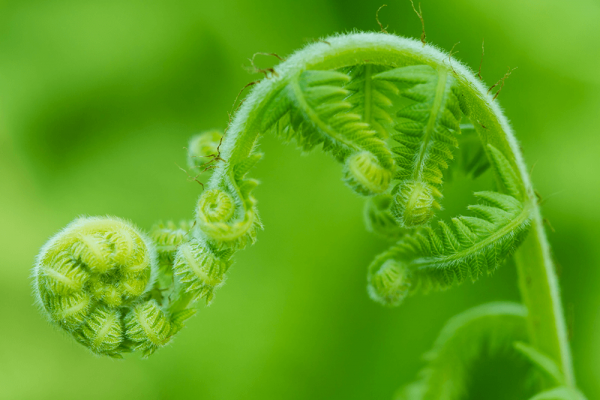“I come into the peace of wild things
who do not tax their lives with forethought
of grief.” —Wendell Berry, “The Peace of Wild Things”
A few weeks ago, I received a call telling me that one of my closest friends from college had died. His death was a sudden, tragic one. It was the kind of news that dislodged the other undigested griefs: Supreme Court rulings, climate disasters, and this damned pandemic whose most recent subvariant infected me, preventing me from seeing my friend laid to rest and isolating me from those who I need most.
Despair blossomed in me; my fears of what my life and the lives of future generations could become seem to be coming true. I take my bouquet of despair to the only place big enough to embrace it: the body of Creation. I set it before the altar of the water and soil.
I have my places: those close-by thin places where God’s presence unfolds like the fiddlehead fern. In the morning I walk down with my hound dog, Sierra, to the stream behind our house. We take turns leading each other in exploration of growing things alongside the water. We are a good team, Sierra being more attracted to the smells of death, and I to the sights of life. Both are necessary and intermingled, in nature and in grief.
In the evenings when I’m feeling more ambitious, I drive to a local tract of Duke Forest and hop on my bicycle for a ride up the gravel path to a stand of longleaf pine. The sun likes to set behind these particular trees, painting an array of bushy silhouettes against the orange sky. This longleaf stand is one of the only ones in the piedmont of North Carolina. These trees testify to a lost time when they covered the landscape. That was a time before they were called forth to hold the sails on which the economic and war machine of the United States marched forward.
These last few weeks, I have found myself going to these places more often. In them, my despair feels accepted. Despair is not profane to these creatures who have known death and loss, whose lives began long before and will persist long beyond my own.
I bring my wounded heart to a place of wounds. The longleaf pines stand atop land that was once used for growing tobacco, cutting erosion gullies into the soil that can still be read today. Aldo Leopold wrote that “One of the penalties of an ecological education is that one lives alone in a world of wounds.” While his words about this world of wounds are true, I see this as a privilege, not a penalty. I bring my wounded world into this world of wounds and find peace. I find freedom.
The spiritual benefits I receive from being in creation are reflected in the scientific literature. A slew of studies published in the last decade have drawn a line between time spent in nature and an array of psychological benefits. Those benefits range from general happiness and less stress to a greater sense of meaning and purpose in life. A 2020 study found that people more connected to nature experience greater eudaimonic well-being, or spiritual fulfillment. In this case, science is catching up with the intuition and experience of mystics, gardeners, and walkers: Nature is good for our body, mind, and spirit.
In these dark days, despair feels pressing and urgent. Yet, we know from our sacred scriptures and from history books that long after death and destruction, long after the end of worlds, the work of creation continues. I take heart in the wisdom of the Pirkei Avot, a collection of Jewish ethical writings that quote Rabbi Tarfon as having said, “It is not your duty to finish the work, but neither are you at liberty to neglect it.” It is an at-once commissioning and humbling quote. My work matters, but certainly no more than the century-old sycamore filtering water on the bank of my neighborhood stream, bearing witness to its wounds day after day after day.
As Wendell Berry writes, “I rest in the grace of the world, and am free.”
Got something to say about what you're reading? We value your feedback!







